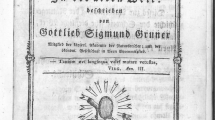Abstract.
Turbidity currents generated during floods of small and medium rivers have been demonstrated to be an important process of sediment transport from continent to abyss. They produce fine-grained turbidite deposits. No deposit related to these flood-related turbidity currents has yet been described in the deep sea. In this paper, we present some unusual sandy to muddy turbidite beds cored in the Var turbidite system (NW Mediterranean). They show a coarsening-upward basal unit capped with a classical fining-upward unit which are related to the periods of increasing and decreasing discharge at the river mouth, respectively. The two units are separated by a contact which can be gradational to erosional. This intrabed contact is interpreted as resulting from erosion during peak flood conditions. This intrabed contact can be confused with classical basal contacts of turbidite beds. The frequency of hyperpycnal turbidite beds can be used to relate climatic changes inland to the deep-sea sedimentary record, as an increase corresponds to periods of enhanced flooding at the river mouth.
Similar content being viewed by others
Author information
Authors and Affiliations
Additional information
Revision accepted: 17 May 2001
Electronic Publication
Rights and permissions
About this article
Cite this article
Mulder, .T., Migeon, .S., Savoye, .B. et al. Inversely graded turbidite sequences in the deep Mediterranean: a record of deposits from flood-generated turbidity currents?. Geo-Mar Lett 21, 86–93 (2001). https://doi.org/10.1007/s003670100071
Received:
Issue Date:
DOI: https://doi.org/10.1007/s003670100071




